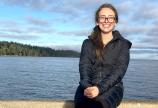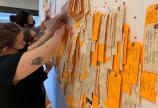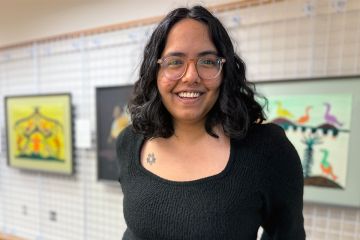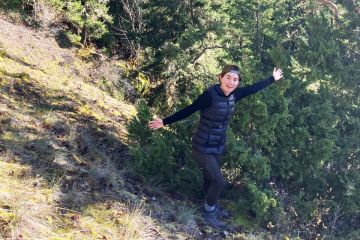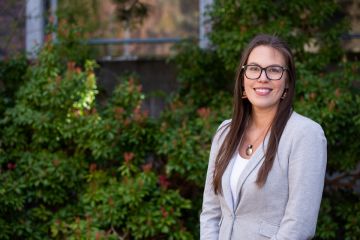Anthropology grad reflects on international experience
- Anne MacLaurin
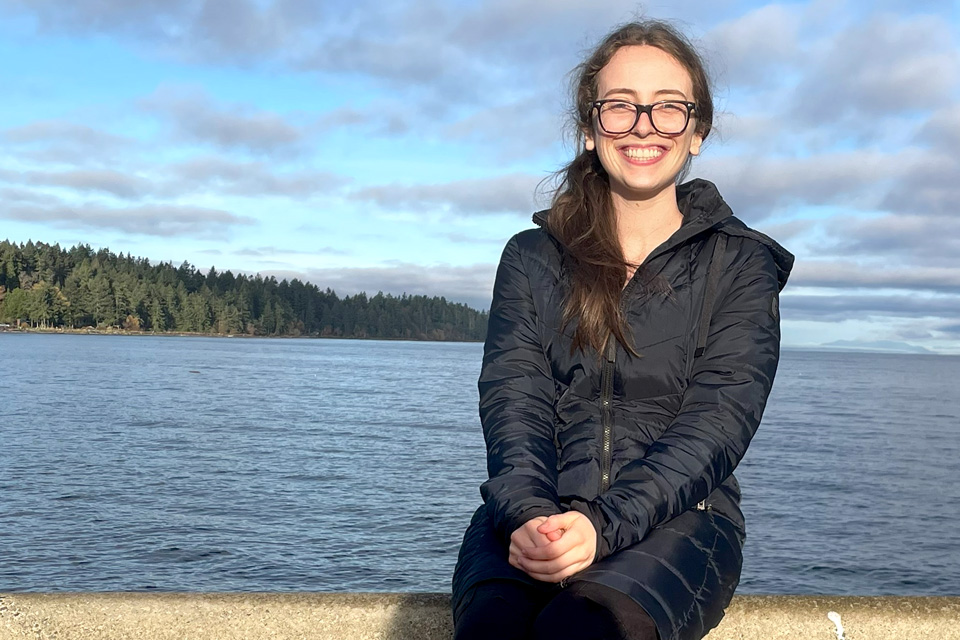
Graduating this spring, anthropology major/sociology minor undergraduate student, Emma Emile appreciates her time at UVic, especially how anthropology “sparked critical reflection on what it means to be human.”
“I think the defining factor was the incredibly supportive network of individuals involved particularly within the anthropology and sociology departments: with their doors always open and a warm smile to greet you, the faculty within the two departments were some of the most welcoming, hardworking, and inspiring individuals I have had the privilege of knowing,” says Emile.
The anthropology and sociology faculty continuously inspired my studies as their enthusiasm, knowledge and dedication to their work helped fuel my own.
—Emma Emile
She credits two experiences as an undergrad that equipped her with a deeper cross-cultural understanding of the world and human experiences: the Hostile Terrain exhibit (ANTH 372) and the Cuba Ethnographic Field School.
“The Hostile Terrain exhibit was part of an incredible course, ANTH 372, it provided an incredibly eye-opening learning experience around undocumented migrants and the devastating migrant crisis unfolding along the US-Mexico border,” says Emile.

Students were directly involved in the construction of the Hostile Terrain-94 (HT94) installation at UVic by carefully attaching each single toe tag to the 16-foot-long wall map. The tags are geolocated on this wall map of the desert, showing the exact locations where people’s remains were found.
Additionally, the Cuba Ethnographic Field school was a life-changing experience for Emile who experienced firsthand the incredible generosity, resilience and strength of Cuban people.
“From Afro-Cuban religious experts to artists and a Cacao Queen, the field school provided an incredible glimpse into the vibrant history, spirit, and significance, of Cuban culture; further, due to the participatory nature of ethnography, simply observing, interacting, and living, with locals on a daily basis provided a worthwhile learning environment,” says Emile.
Plunged into an environment and way of life very different from my own, the field school proved to be the most incredible learning experience I have had thus far and I will carry the lessons I learned for the rest of my life.
—Emma Emile
Emile adds that both experiences opened her eyes to pressing issues and circumstances that ignited a deep desire to work towards being part of much needed change in the world.
Emile grew up in a close-knit Portuguese-Métis-Canadian household with a younger brother and twin sister surrounded by an immensely loving extended family.
I was lucky to attend UVic with both my brother and sister who I cherish. We shared some unforgettable classes together.
—Emma Emile
“I'm very excited to embark on a two-month backpacking trip through Europe with my sister as I know it will be an incredible life-changing experience,” says Emile.
With her time at UVic coming to an end, Emile says it feels bittersweet saying goodbye to professors, friends and routines that have made up the last four years of her life.
“In saying that, I’m very excited for this next chapter of my life to begin and I'll always be thankful for the transformative years I've had at UVic that brought me to this point,” adds Emile.
Enjoy reading UVic publications? Share your thoughts and shape the future of UVic publications by taking our survey.
Photos
In this story
Keywords: convocation, student life, international
People: Emma Emile
Publication: The Ring

